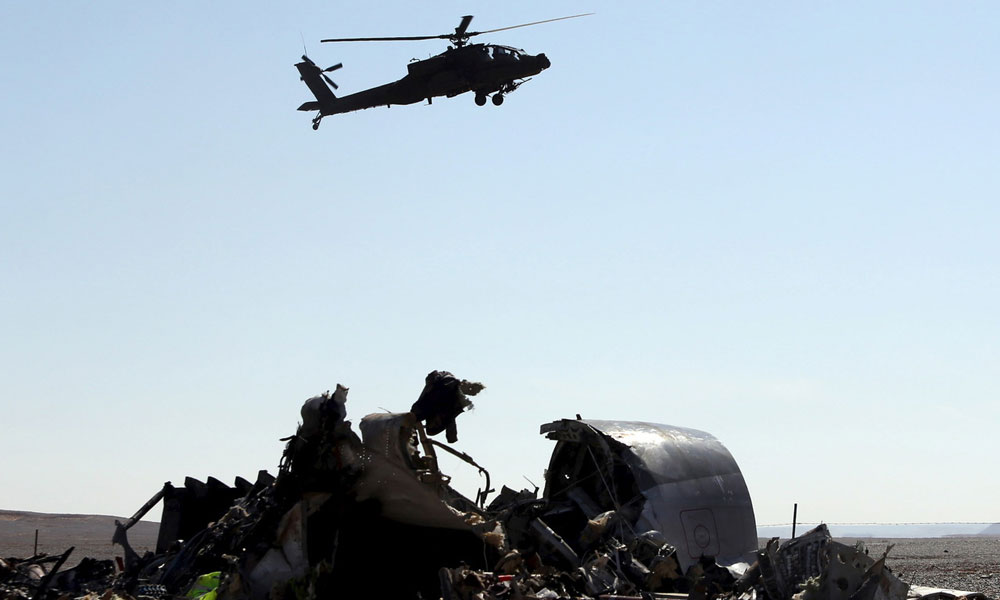
Air Transport Group: Stronger Conflict Zone Threat-Sharing Needed
With a recent plane crash raising concerns about the dangers of flying over conflict zones, the International Air Transport Association—citing a new report on last year’s deadly Ukraine crash—is calling on governments to improve their sharing of security threats with airlines.
As this past weekend’s deadly plane crash in a remote part of Egypt proved, international flights take on a lot of risk when flying over conflict zones.
It’s unclear so far whether Kogalymavia Flight 9268, which broke into pieces while flying over Egypt’s Sinai Peninsula on Saturday, killing all 224 aboard, was the victim of terrorism or technical and mechanical problems. An affiliate of the Islamic State, Wilayat Sinai, claimed credit for the crash, but experts are skeptical.
Whatever the cause, a newly released report from a similar air disaster could provide some insight into the tragedy while giving the airline industry new strategies to improve security. In October the Dutch Safety Board published its report on Malaysia Airlines Flight 17, which crashed in July 2014 after being hit by a missile while flying over Ukraine. The International Civil Aviation Organization (ICAO), the United Nations’ aviation-safety arm, is currently assessing the report’s recommendations, which could improve the agency’s fledgling information-sharing efforts.
In comments about the safety board’s report at the AVSEC World conference in Dublin, Tony Tyler, director general and CEO of the International Air Transport Association (IATA), called for governments worldwide to work closer with airlines to share threat data with the group’s members. He gave ICAO credit for launching the Conflict Zone Information Repository earlier this year but noted that governments must play their part in ensuring the system is relevant.
“[G]overnments must provide authoritative, accurate, consistent, and unequivocal information about security threats in order for airlines to manage the risks of flight operations effectively. This is a government responsibility,” Tyler said in a speech.
(As for the most recent airline disaster, IATA is taking a wait-and-see approach. A spokesperson for the association told PRWeek on Monday that it felt speaking up now would be “premature” as the details of the weekend’s crash are as yet unclear.)
Elsewhere in his speech, which occurred before the Kogalymavia crash, Tyler emphasized that incidents such as MH17 were relatively rare and that the industry was constantly working to improve air safety, something highlighted by the association’s recent efforts to step up its cybersecurity game.
“In line with our technical achievements on safety, Air Transport has a solid record on keeping its passengers and cargo secure since the tragedy of 9/11,” he stated. “But it is a record that we must maintain each and every day through vigilance and forward thinking to keep aviation at least a step ahead of those who would do us and our passengers harm.”
(iStock/Thinkstock)






Comments